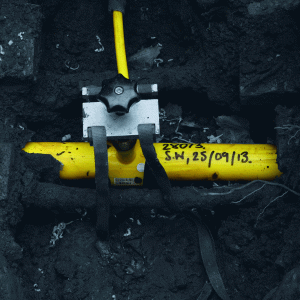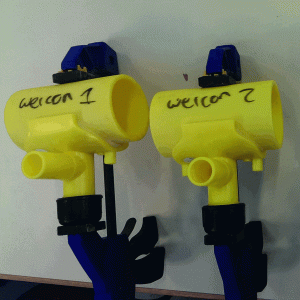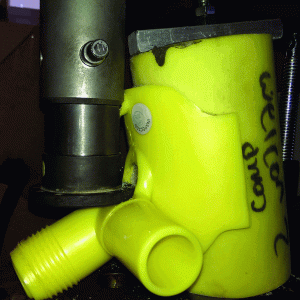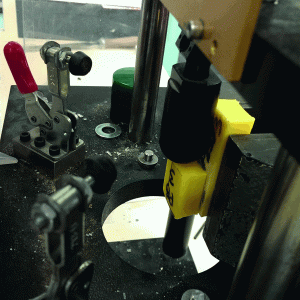As most construction engineers would know, bonding polyethylene pipes (typically used for gas lines) is usually not possible and they are generally connected using an electrofusion welding process. A process that requires special electrofusion welding machines, into which the pipes are inserted. A voltage is then applied for a fixed time to heat up and melt the pipe, welding it together. But have you ever wondered whether they can be connected using a bonding agent or adhesive instead?
That was the question that a team of researchers from the University of Northumbria in Newcastle, England set out to answer. In their experiment, they tested various adhesives from a range of suppliers all over the world by bonding a t-piece connection to a series of polyethylene pipe sections commonly used for gas pipelines in road construction. Among the range of adhesives tested was Weicon’s Easy-Mix PE-PP 45 structural acrylic adhesive.
A series of experiments were set up to emulate the influences that the pipes would be exposed to in the real world environment. The first test conducted was a quasi-static compression test designed to simulate the load on the bonded connection due to being buried below the ground. The second test was a shock test designed to measure the impact resistance that could result from the connection being hit with a spade or other weight that could occur during construction works. To test this a 10 kilogram weight was dropped on the connection from a height of 1.7 metres. The third test was designed to measure the connection for gas tightness, i.e. the amount of pressure through the pipe that the bonded connection can handle.
Results
Upon completion of the tests, Weicon Easy-Mix PE-PP 45 scored the best results and could be clearly distinguished from the competition. In the quasi-static compression test, the bonded connection could not be destroyed and instead the polyethylene t-piece became deformed. The impact test also could not cause significant damage to the bonded connection and in the third test, the connection was able to withstand about 300 times the normal operating pressure of a gas pipeline with no drop in pressure over a 24 hour period. These tests clearly proved the enormous impact and tensile strength that connections bonded with PE-PP 45 can achieve.
The tests results should be of great interest to industrial engineers and operators of supply networks as they show PE-PP 45 offers an easy-to-use alternative to electrofusion welding. PE-PP does not require mixing or the use of a primer to pre-treat the surface and is resistant to chemicals and aging. It has a short pot life and works quickly to achieve a high strength bond.
To find out more about this highly useful and impressive product, click here to go to the designated product page or contact your local AG branch.




